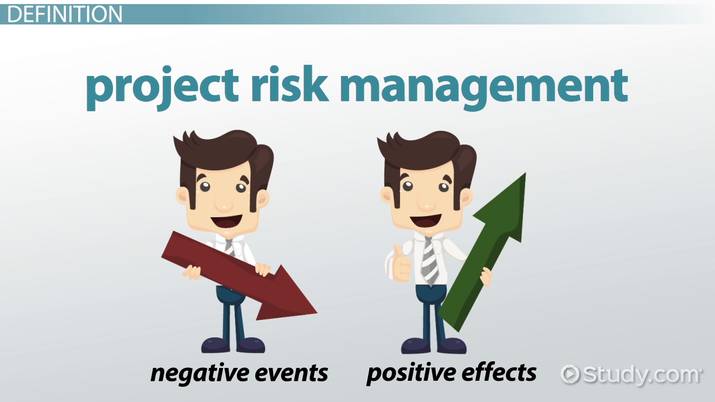
This article will discuss the job description, education, and salary for project managers. In addition to the salary, there are a few other important details to consider. If you are interested in Project Management, it is a good choice. There are many benefits to this career path and it is one that is growing fast. Read on !... to learn more. Happy Career Hunting!
Job description
A career as a project manager requires strategic awareness, the ability understand and connect customers' needs with the company’s future vision, and the ability lead cross-functional and external vendors. Project managers must be able to identify and achieve business goals. They also need to influence the company strategy and obtain buy-in from all stakeholders. The project manager is a product visionary. They must align their time and resources with the company’s strategic vision and KPIs.

You may find work as a project manager in the healthcare, insurance, marketing and IT industries. Managers of project teams can work in small and large organizations. A project manager must know the best methods of project management and be able work well under pressure.
Salary
You can expect to earn more if you are a project manager. Project managers coordinate and manage a range project portfolios to their completion. They ensure that projects are completed within the budget and on time. Although the salary for project managers can vary depending on their area of responsibility, the job description and duties are the same in all locations. A project manager might also be interested in an executive role or start their own business.
Project managers may also be promoted to senior positions depending on their industry. Many high-level positions require project management experience. Additionally, executive leaders need to be able to manage teams and have business acumen. An MBA in this field can help you develop these skills and increase your income. But, the salary for project managers can be very high. Project manager salaries can vary depending on the experience of the individual and the field.
Education Required
Your role as a project manager is to oversee the entire project and not just manage the details of one task. Project managers don't have to be experts in all areas. However, they should be skilled in managing different aspects of a given project. These people may be recent graduates or professionals with extensive experience in their field. This career path requires a bachelor's level of education, regardless of your experience.

Consider a business degree or other related subject if you're looking to get into project management. This will give your the skills and experience you need to run a successful business project. You may also be interested in managing larger-scale projects. A graduate degree is an option. You'll also be prepared to assume high-level leadership roles and take on responsibilities related to large projects.
FAQ
What are the 3 main management styles?
The three major management styles are authoritarian (left-faire), participative and laissez -faire. Each style has its own strengths and weaknesses. Which style do YOU prefer? Why?
Authoritarian - The leader sets the direction and expects everyone to comply with it. This style works best if the organization is large and stable.
Laissez-faire - The leader allows each individual to decide for him/herself. This style works best when the organization is small and dynamic.
Participative: The leader listens to everyone's ideas and suggestions. This is a great style for smaller organizations that value everyone.
How does a manager motivate their employees?
Motivation can be defined as the desire to achieve success.
Engaging in something fun can be a great way to get motivated.
You can also feel motivated by making a positive contribution to the success in the organization.
If you are a doctor and want to be one, it will likely be more rewarding to see patients than to read medical books every day.
Motivation comes from within.
Perhaps you have a strong sense to give back, for example.
Maybe you like working hard.
Ask yourself why you feel so motivated.
You can then think of ways to improve your motivation.
What role should a manager play within a company
There are many roles that a manager can play in different industries.
Managers generally oversee the day-today operations of a business.
He/she is responsible for ensuring that the company meets all its financial obligations and produces the goods or services customers want.
He/she makes sure that employees adhere to the rules and regulations as well as quality standards.
He/she oversees marketing campaigns and plans new products.
What are the 4 major functions of management
Management is responsible to plan, organize, direct, and control people and resources. It also includes developing policies and procedures and setting goals.
Management helps an organization achieve its objectives by providing direction, coordination, control, leadership, motivation, supervision, training, and evaluation.
Management has four primary functions:
Planning – Planning involves deciding what needs to happen.
Organizing: Organizing refers to deciding how things should work.
Directing - This refers to getting people follow instructions.
Controlling – This refers to ensuring that tasks are carried out according to plan.
How can we create a successful company culture?
A positive company culture creates a sense of belonging and respect in its people.
It is based on three principles:
-
Everyone has something to contribute
-
People are treated fairly
-
Individuals and groups can have mutual respect
These values reflect in how people behave. They will treat others with kindness and consideration.
They will respect other people's opinions.
They encourage others to express their feelings and ideas.
Company culture also encourages open communication, collaboration, and cooperation.
People feel comfortable expressing their opinions freely without fear of reprisal.
They understand that mistakes can be forgiven as long as they're dealt with honestly.
Finally, the company culture promotes honesty and integrity.
Everyone is aware that truth must be told.
Everyone understands that there are rules and regulations which apply to them.
People don't expect special treatment or favors.
What are your main management skills
No matter if they are running a local business or an international one, management skills are vital. They include the ability to manage people, finances, resources, time, and space, as well as other factors.
When you need to manage people, set goals, lead teams, motivate them, solve problems, develop policies and procedures and manage change, management skills are essential.
As you can see, there's no end to the list of managerial duties!
What is Six Sigma and how can it help you?
It's an approach to quality improvement that emphasizes customer service and continuous learning. It is a method that eliminates defects using statistical techniques.
Motorola developed Six Sigma in 1986 to help improve its manufacturing processes.
The idea spread quickly in the industry. Today many organizations use six-sigma techniques to improve product design.
Statistics
- Your choice in Step 5 may very likely be the same or similar to the alternative you placed at the top of your list at the end of Step 4. (umassd.edu)
- The BLS says that financial services jobs like banking are expected to grow 4% by 2030, about as fast as the national average. (wgu.edu)
- Our program is 100% engineered for your success. (online.uc.edu)
- As of 2020, personal bankers or tellers make an average of $32,620 per year, according to the BLS. (wgu.edu)
- Hire the top business lawyers and save up to 60% on legal fees (upcounsel.com)
External Links
How To
What is Lean Manufacturing?
Lean Manufacturing is a method to reduce waste and increase efficiency using structured methods. These processes were created by Toyota Motor Corporation, Japan in the 1980s. The main goal was to produce products at lower costs while maintaining quality. Lean manufacturing eliminates unnecessary steps and activities from a production process. It includes five main elements: pull systems (continuous improvement), continuous improvement (just-in-time), kaizen (5S), and continuous change (continuous changes). The production of only what the customer needs without extra work is called pull systems. Continuous improvement refers to continuously improving existing processes. Just-in time refers to components and materials being delivered right at the place they are needed. Kaizen means continuous improvement, which is achieved by implementing small changes continuously. Five-S stands for sort. It is also the acronym for shine, standardize (standardize), and sustain. To achieve the best results, these five elements must be used together.
The Lean Production System
Six key concepts form the foundation of the lean production system:
-
Flow - The focus is on moving information and material as close as possible to customers.
-
Value stream mapping is the ability to divide a process into smaller tasks, and then create a flowchart that shows the entire process.
-
Five S’s - Sorted, In Order. Shine. Standardize. And Sustain.
-
Kanban: Use visual signals such stickers, colored tape, or any other visual cues, to keep track your inventory.
-
Theory of constraints - identify bottlenecks in the process and eliminate them using lean tools like kanban boards;
-
Just-in time - Get components and materials delivered right at the point of usage;
-
Continuous improvement - Make incremental improvements rather than overhauling the entire process.